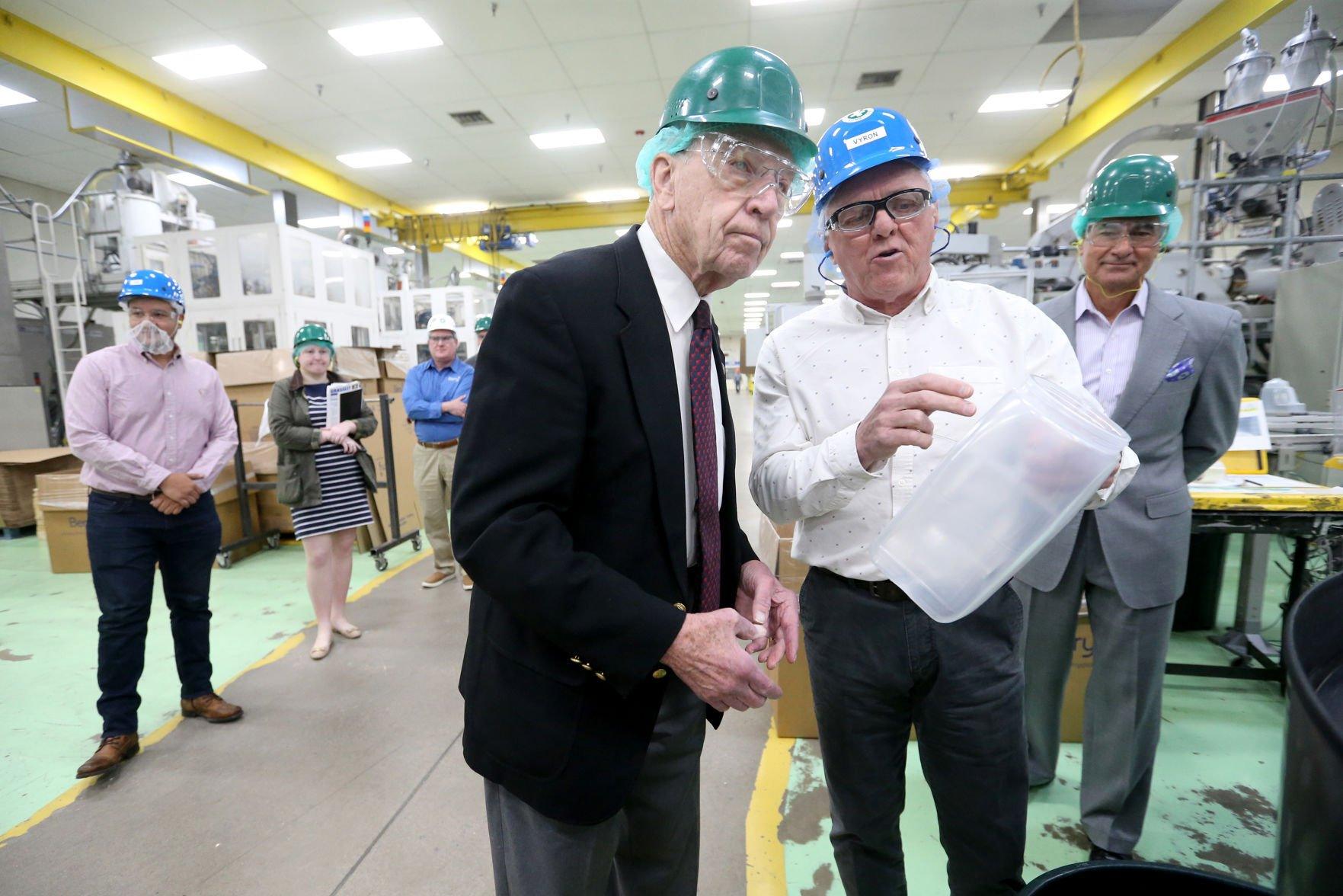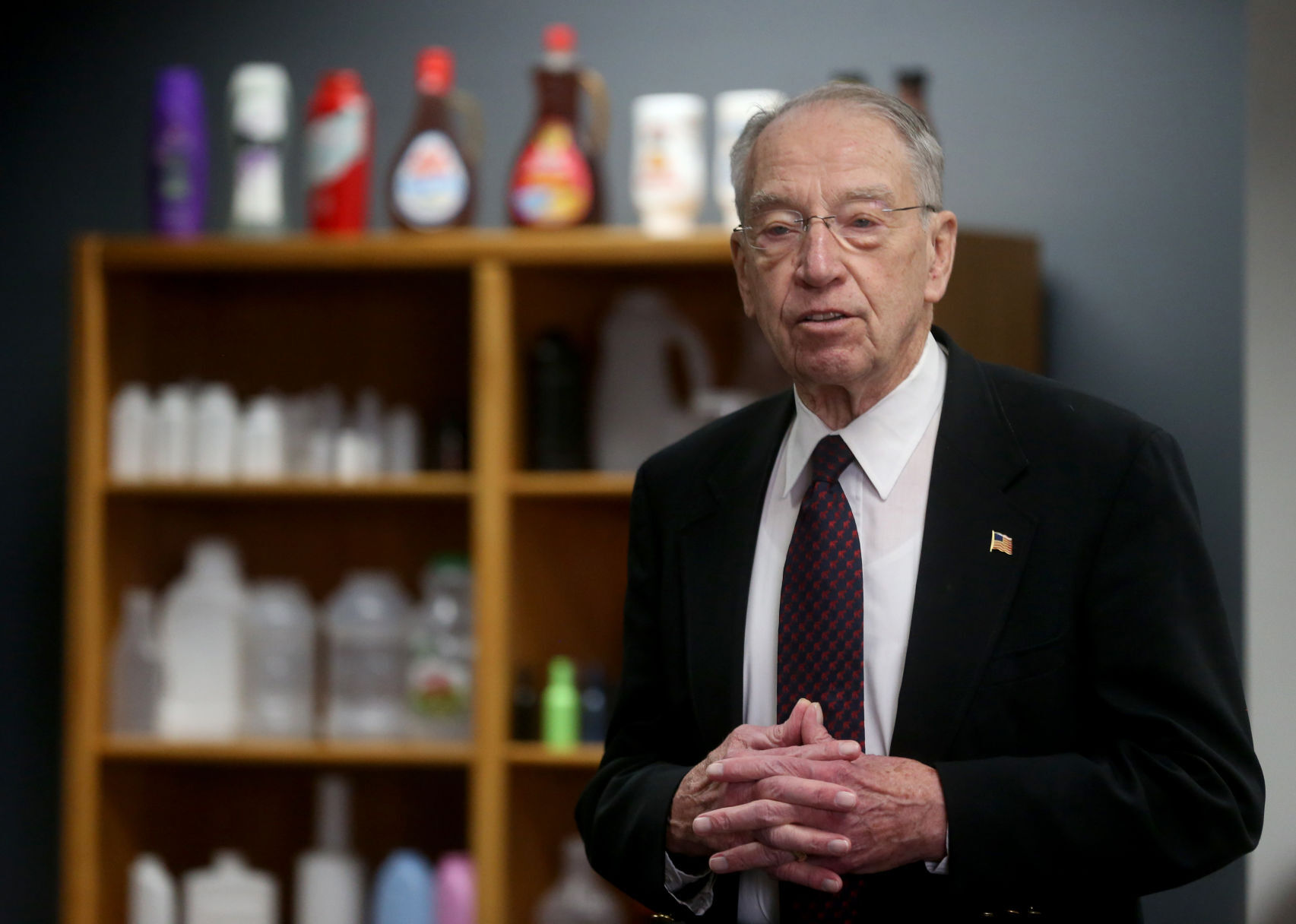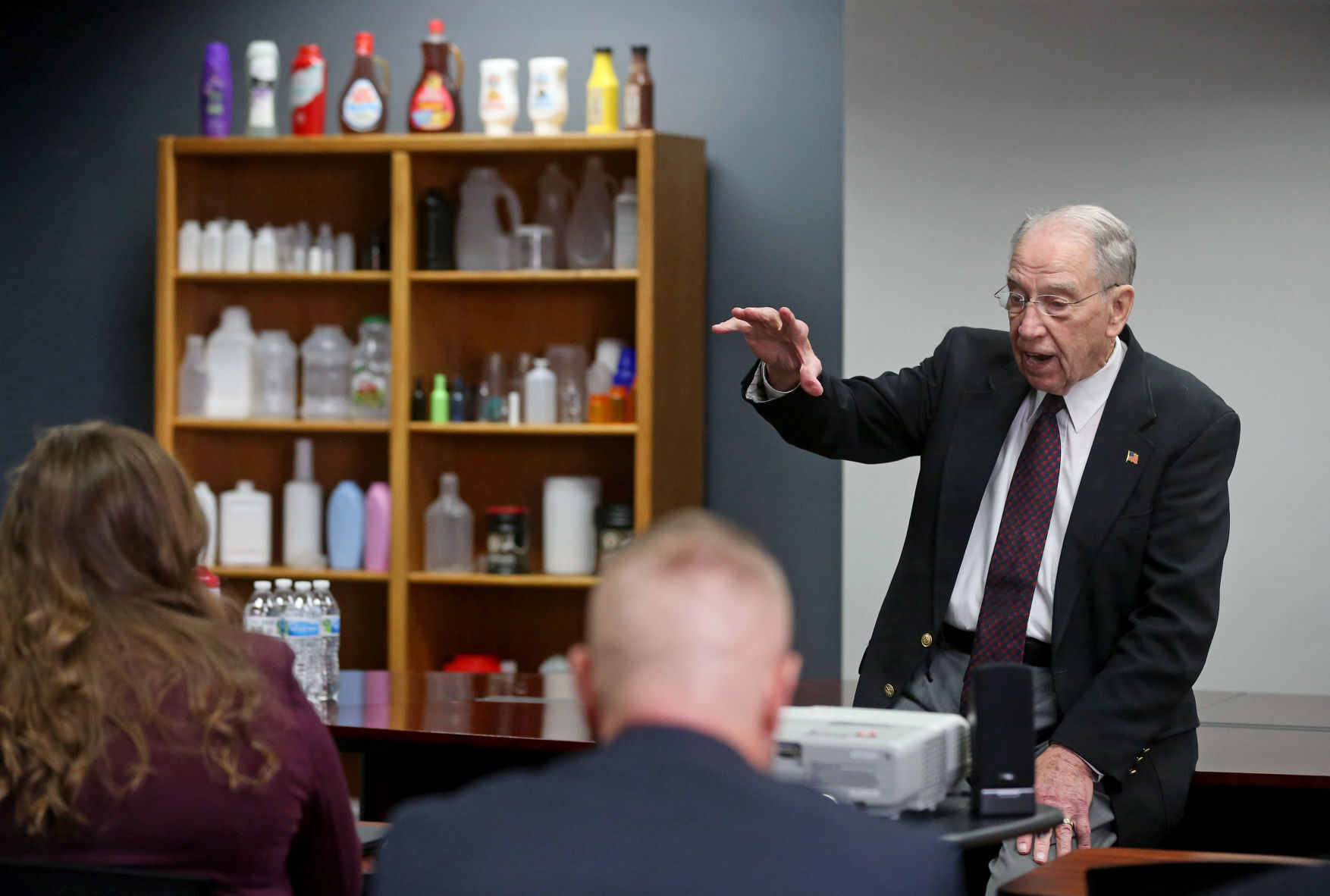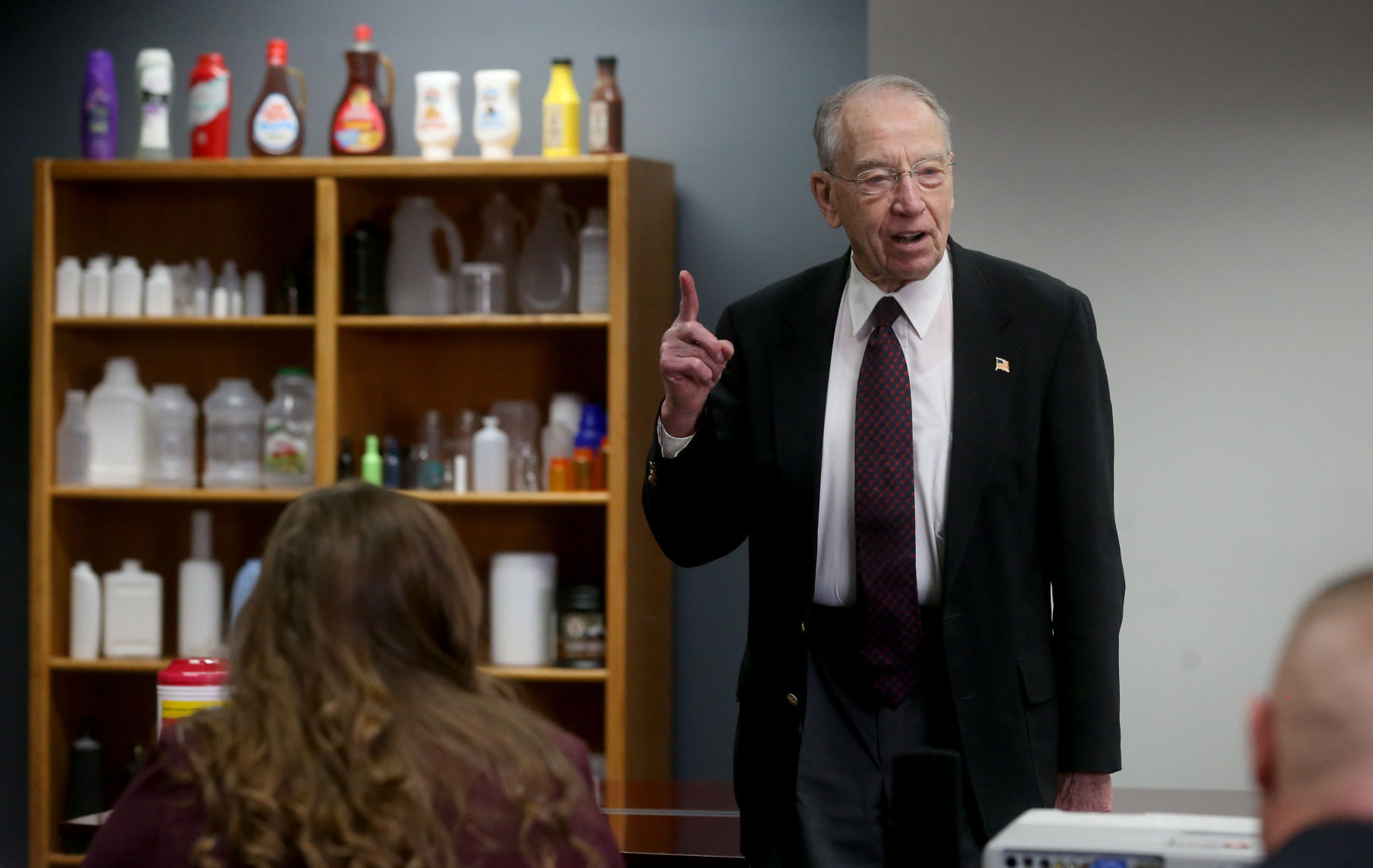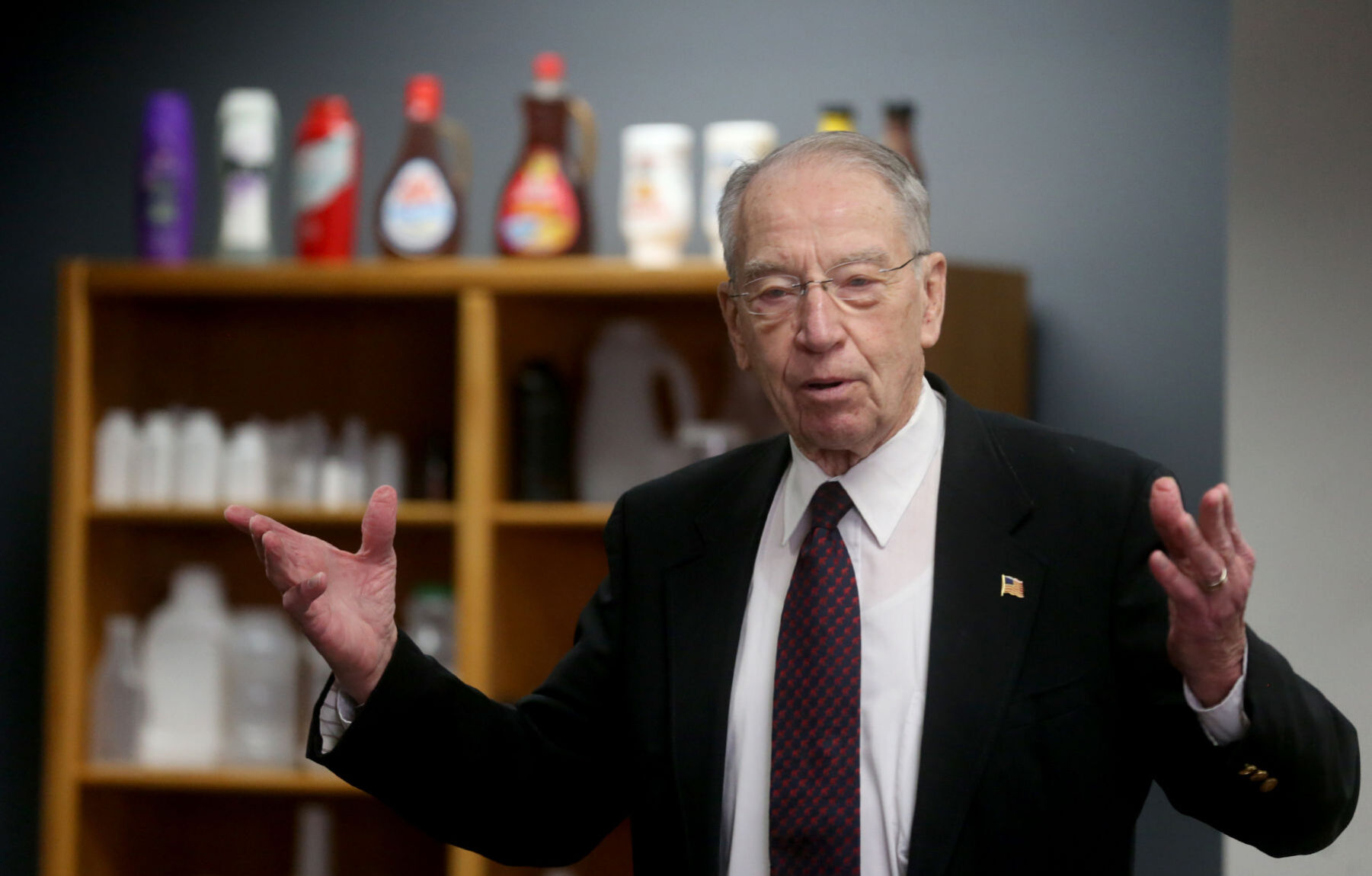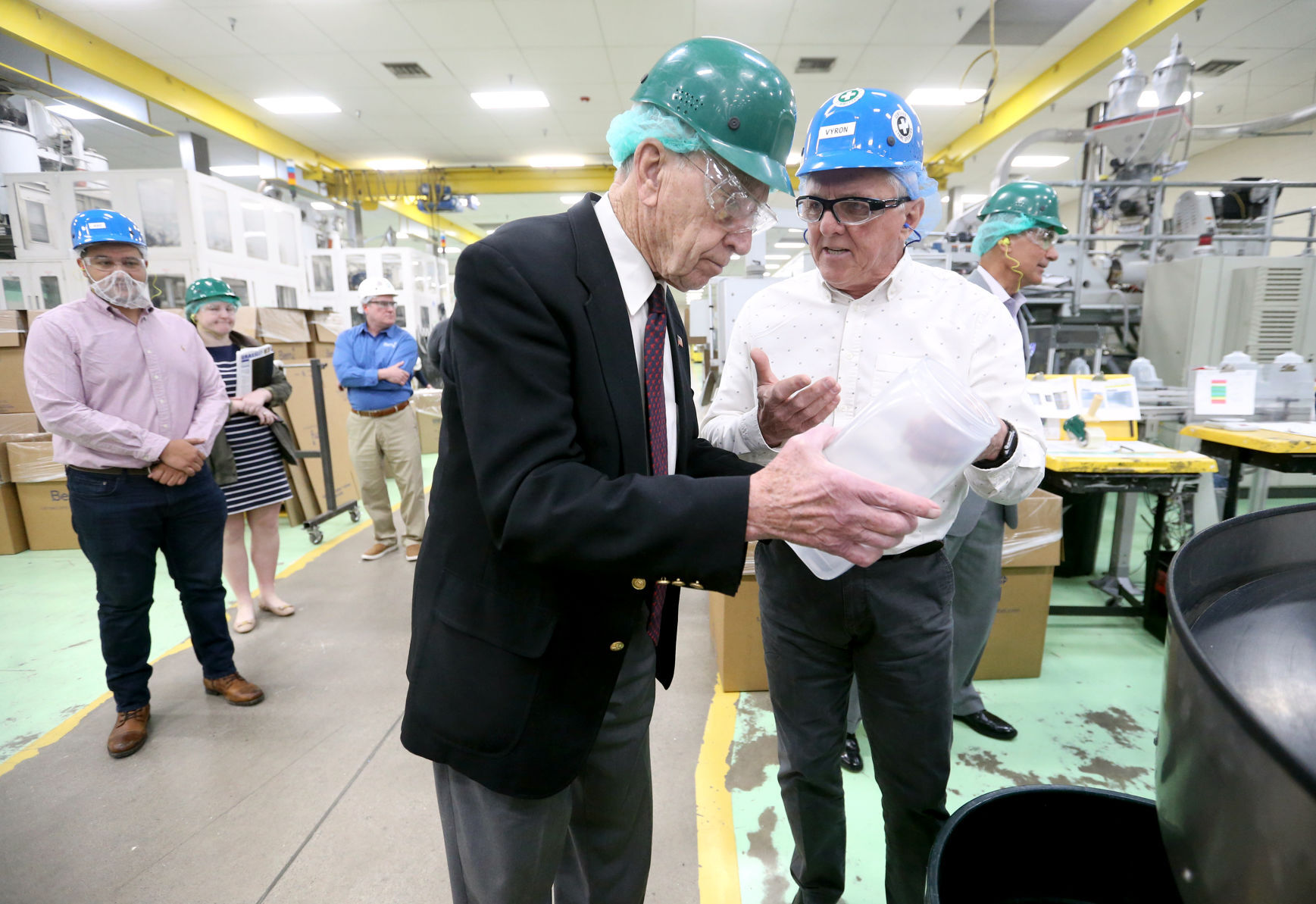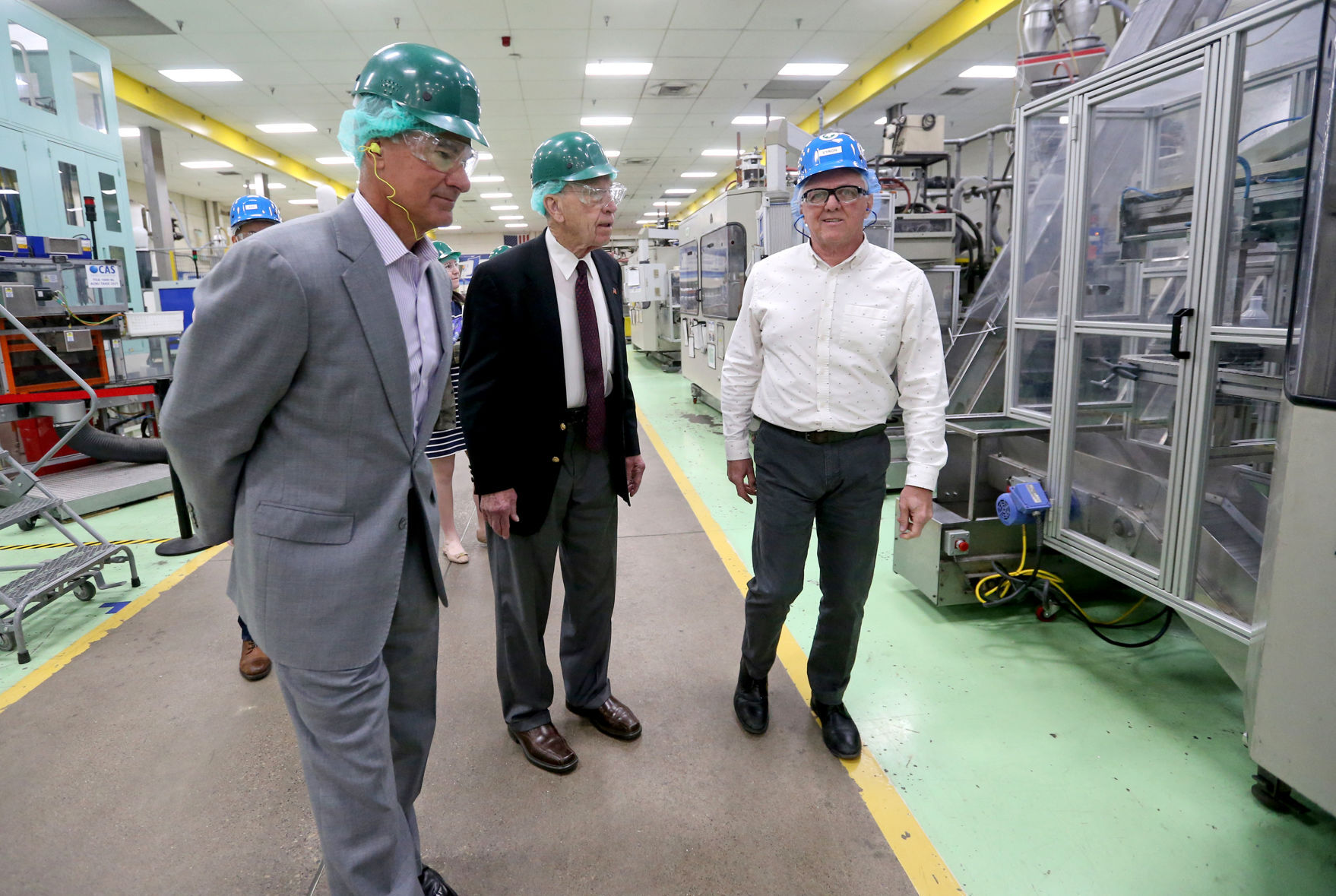PEOSTA, Iowa — U.S. Sen. Chuck Grassley, R-Iowa, on Tuesday toured the Berry Plastics plant in Peosta, where he discussed ongoing legislative efforts to keep the U.S. competitive with China and other topics.
Tom Salmon, president and CEO of the Evansville, Indiana-headquartered company, was at the Peosta location for Grassley’s visit. He said that in 2021, workers at the Peosta plant turned 13.5 million pounds of plastic into bottles, other packaging and even parts for personal protective equipment for the COVID-19 pandemic.
Grassley said after his tour of the plant floor that he was impressed with the variety of products being produced all at once.
“You’ve got a heck of a lot more products than I’ve seen from one facility,” he said.
Berry Plastics also has operations in China that provide goods to the people who live there, Salmon said.
“Everything we do is we serve local markets,” he explained to Grassley. “We don’t export anything from China. We serve China and Southeast Asia.”
Given that connection, Salmon told Grassley that he was concerned about potential measures that could come out of upcoming congressional discussions about a bill aimed at making U.S. business competitive with China.
“When I think about a policy that ultimately restricts trade between the United States and China, the initial impact on the United States is inflation, more inflation, because we’re not equipped yet to produce goods that are cost-competitive,” he said. “And I don’t know how much more (inflation) we can bear.”
Grassley did not speak directly to a measure that would restrict trade, but he said Congress needed to be tougher on China.
“I voted for (China) to join the World Trade Organization,” he said. “When I was over there three or four years ago, in five different provinces, I said that was a big mistake I made because they don’t live up to the rules of international trade.”
Following a discussion with Berry Plastics employees, Grassley said in an interview that there were some major discrepancies between the House of Representatives and Senate versions of China competition bills as the chambers prepare to enter council discussions.
“The House bill, besides just dealing with the China problem, loaded it down with a bunch of stuff from Build Back Better, the global warming provisions in Build Back Better,” Grassley said. “Those are going to have to come out, or you’ll never get 60 votes in the United States Senate. The main thing is incentives to bring manufacturing back from China, especially on semiconductors.”
Democrats control both the House and Senate by slim margins. The Iowa Democratic Party did not provide comment for this story by deadline.
Grassley said discussion on the China competition bill is an example of bipartisanship in an increasingly partisan Washington, D.C.
In Peosta, several Berry Plastics employees also asked about the nation’s ongoing workforce shortage and what, if any, role Congress has to play in easing it.
Grassley said one solution was to open access to Federal Pell Grants to people other than traditional, degree-track college students.
“If you go to get training and are not in a degree program, you can’t get a Pell Grant,” he said. “So, we are going to provide Pell Grants to people who have a certificate program, something less than two years.”
Grassley also voiced support for phasing out benefits to people once they reach income thresholds for government programs, rather than cutting them off at once.
“The other (solution) is for people on various government programs,” he said. “It’s not part of life that they want, but they feel at least some certainty. Then, if they go out to get a job and make $1 over what the government says they can to qualify, they lose everything. … If you go to the workforce, you shouldn’t lose all of these benefits at once.”


